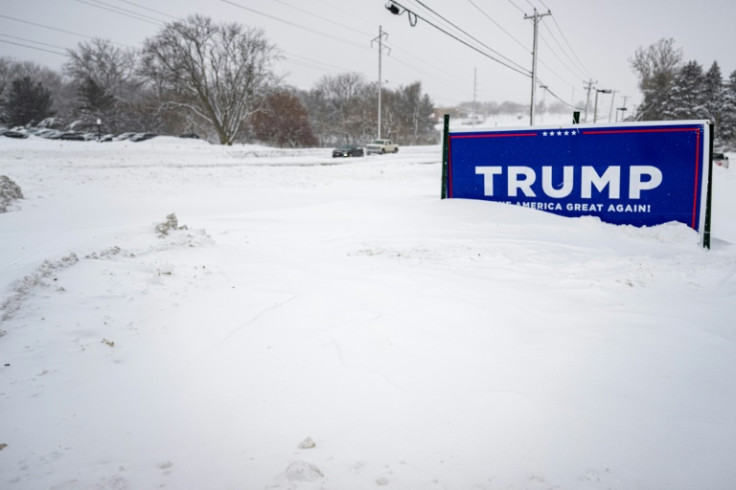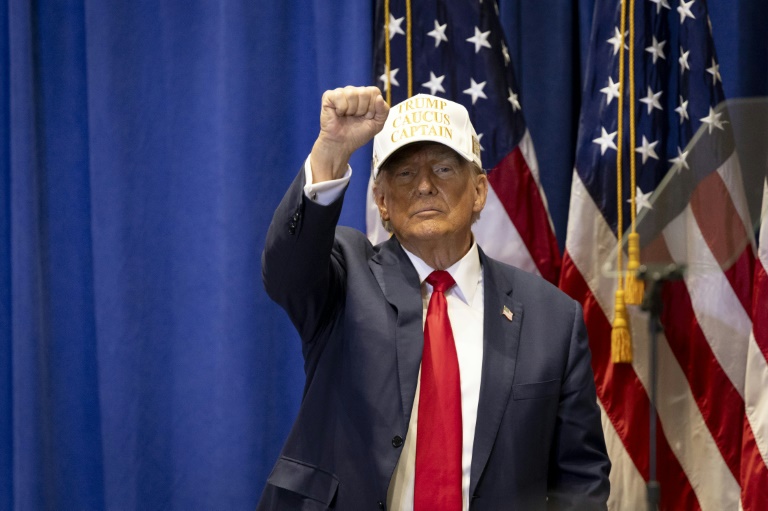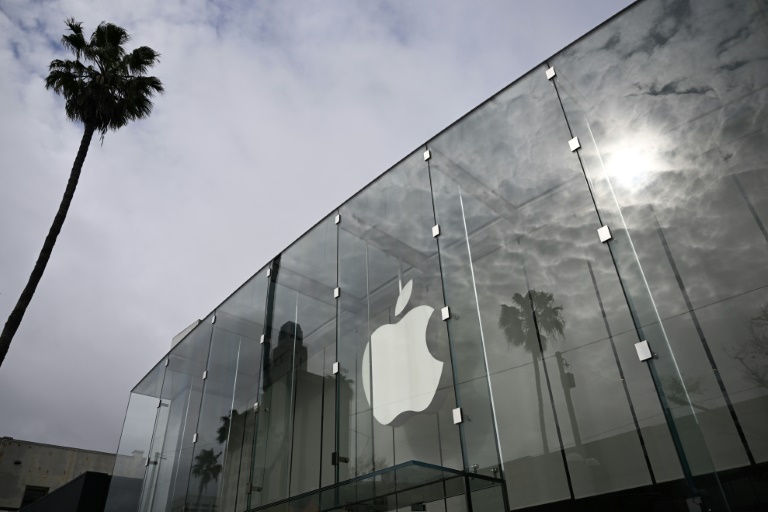Iowa’s first-in-the-nation Republican nominating contest for the US presidential election could hardly have been scripted better for Donald Trump, whose historic performance leaves his rivals fighting for scraps.
In his first time on a ballot since facing four criminal indictments and accusations that he incited an insurrection, the ex-president secured a historic 30-point winning margin as he bids for White House return.
His rivals Ron DeSantis and Nikki Haley put a brave face on the outcome but struggled to articulate a realistic path forward as Trump’s triumph was projected just half an hour into the evening.
Long known for obliterating norms, the 77-year-old former reality TV star’s 51-percent vote share made a mockery of the maxim that campaigning in person is essential in Iowa, where he spent less money than his rivals and a fraction of the time.
It was a wake-up call to many of the hold-outs who had been dreaming of a post-Trump Republican Party but are coming to terms with the notion that his nomination to face President Joe Biden in November now looks inevitable.
“This is really time for our country to come together,” Trump said in a victory speech that appeared calculated to convince America that the primary was a done deal.
Much of the US media appeared to agree, with The Washington Post writing that Iowa had followed a “prewritten script” and Politico predicting that Trump “could all but end the primary next week in New Hampshire.”
The stakes in the next contest in New Hampshire next Tuesday are clear: No Democrat or Republican has ever lost their party’s nomination after securing victory in both opening states.
But while Washington-watchers have been writing off DeSantis and anointing Trump, some experts say it’s too early to count out Haley, who is seen as much stronger in New Hampshire, which comes a month before her home state contest in South Carolina.
“New Hampshire is… a so-called open primary, which means that even independents can vote in the Republican primary,” said political consultant Louis Perron, author of the book “How to Overcome the Power of Incumbency in Election Campaigns.”
“This terrain is much more friendly to Nikki Haley, so she has to do well.”
Perron pointed out that, with poor weather limiting turnout, Trump only actually secured some 55,000 votes in Iowa, a disproportionately white, religious and right-wing state that rarely reflects the rest of the contest.
Henry Olsen, a senior fellow at the conservative Ethics and Public Policy Center think tank, said Haley’s prospects hinge on her getting “within 10” of Trump in New Hampshire next Tuesday and winning South Carolina.
“A close second finish or win in New Hampshire might allow her to make the argument that she’s the most viable alternative to Trump,” added Tim Hagle, a political science professor at the University of Iowa.
“But she would still need to do well in South Carolina and beyond.”
Yet Trump remains 14 points ahead of Haley in the RealClearPolitics polling average for New Hampshire, and she isn’t competitive in Nevada, which comes before her home state’s primary.
In any case, Trump is beating Haley by 30 points in South Carolina, the fourth and final early voting state before the all-important “Super Tuesday” glut of 16 state contests on March 5.
Beyond the unprecedented outcome in Iowa, there was further evidence in surveys taken of the voters that Trump’s potential convictions will do nothing deter Republicans from putting him on the ballot.
Only a third said they would view him as unfit for the presidency if he were convicted of a crime.
But analysts still see it as the one real wildcard, as Trump’s viability for the White House starts to come into focus more sharply as his court appearances begin to pile up in 2024.
A quarter of his voters told a recent New York Times/Siena College poll he should not be the nominee if convicted.
Trump’s federal election interference trial is due to begin in March, one day before Super Tuesday.
“Trump’s legal problems haven’t affected his nomination race very much. His supporters believe he’s being politically persecuted and support him even more,” Hagle told AFP.
“If something significant happens in them, such as a conviction, then it might be more of a problem if he hasn’t won the nomination at that time.”
AFP

AFP






